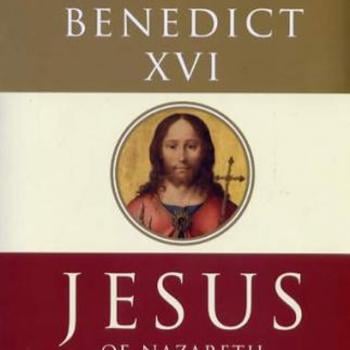“You are great, Lord, and highly to be praised.” (Confessions 1.1)
And in your wisdom O’ Lord you have given us thy servant Aurelius Augustinus, known to us living in the 21st century as the great doctor of the church, St. Augustine. “The praise of Augustine has never ceased to be proclaimed in the Church of God”, said Pope Pius XI.[1] He has been praised so much because he has given us a solid bedrock of theology in which our restless hearts and minds finds refuge in you O Lord my God “because you have made us for yourself, and our heart is restless until it rests in you.” (Confessions 1.1) And because you converted Augstine’s heart in 387 AD, you have given to your church since then a present which continues to be un-wrapped in every generation by those who study the great body of work that this great saint of yours left for us to read. His ‘Confessions’ stand out as the golden achievement of his writings, giving us a book of prayer and philosophical and theological thought plus the remarkable story of how you changed his life. “Confessions, a work that is simultaneously autobiography, philosophy, theology, mysticism and poetry, a work in which those who thirst for truth and know their own limitations have always discovered their own selves.” [2]

The first thing that Augustine confesses to you O’ Lord reader of hearts, in his ‘Confessions’, is his great love for you. “I will love you, Lord, and I will give thanks”. (Confessions 2.15) Can it be wrong at any time or place to love God with all your heart and with all you rsul and with all your mind and to love your neighbor as your self (Matt 22: 37,39) ? (Confessions 2.15) His praise for you rings throughout the book giving for us a model of prayer. “Blessed is the Lord in heaven and in earth; great and wonderful is his name‘ (Confessions 8.1) He praises you with your very own sacred and holy words. He shows how important these words are in addressing you.
“It is well known how much Augustine loved Sacred Scripture, proclaiming its divine origin, its inerrancy, its depth and inexhaustible riches.”[3] “The bible offered itself to all in very accessible words and the most humble style of diction, while also exercising the concentration of those who are not ‘light of heart (Ecclus. 19:4). It welcomes all people to its generous embrace, and also brings a few to you through narrow openings (cf. Matt 7: 13-14) (Confessions 6.8). How important was your Holy Word in the life of this great saint. How important was scripture in his prayer life. And he has given to the readers of his time and to all of time since then a model and inspiration for praying your word.
As I have mentioned time O’ God who is outside of time, your great doctor of the church talks to us about time. “I have heard a learned person say that the movements of sun, moon, and stars in themselves constitute time. But I could not agree. Why should not time consist rather of the movement of all physical objects? I desire to understand the power and nature of time which enables us to measure the motions of bodes and to say that for instance, this movement requires twice as long as that . (Confessions 11.29,30) These musings about time are but examples O’ God of wisdom, of the thinks that your servant thinks. Not only does Augustine give us a book of scriptural praise my Lord God, he gives us questions and ponderings. He confesses his philosophical thinks for us to think “The problem arises from this: Philosophy and Theology both deal with much the same questions, the basic questions about God, life, existence.” [4] And he asks these questions in wonder and awe of the mysterious world that you gave us .
He asks the type of questions we should all ask O’ Lord. Questions that engage the brains you gave us. Questions that make us wonder about this mysterious world that you gave us. “When time is measured, where does it come from, by what route does it pass, and where does it go? It must come out of the future, pass by the preset, and go into the past; so it comes from what as yet does not exist, passes through that which lacks extension, and goes into that which is now non-existent. Yet what do we measure but time over some extension?” (Confessions 11.27)
He ponders the world around him and he ponders himself dear Lord. “Wretch that I was, what did I love in you, my act of theft, that crime which I did at night in the sixteenth year of my life? There was nothing beautiful about you, my thieving. Indeed do you exist at all for me to be addressing you?” (Confessions 2.12) He ponders his own past, his own mind. But his ponderings are not just for himself, they are for all who seek to examine their lives. They are for all who wish to try and understand not only You and the world you gave us, but for us who wish to try and understand ourselves. “What was my state of mind? It is quite certain that it was utterly shameful and a disgrace to me that I had it. Yet what was it?
“Who understands his sins? – Job 10:15 (Confessions 2.17)
Through all his prayer and praise, through all his ponderings and musings, He confesses his life to you O‘ Lord. “The recalling of my wicked ways is bitter in my memory, but I do it so that you may be sweet to me, a sweetness touched by no deception, a sweetness, serene, and content.” (Confessions 2.1) He confesses to you his pride and his lust. “At one time in adolescence I was burning to find satisfaction in hellish pleasures. I ran wild in the shadowy jungle of erotic adventures.” (Confessions 2.1) He confesses to you his wonderings in the heresy of Manicheism He confesses to you his grief and his pain at the loss of his dear friend Nebridius. “Only tears were sweet to me, and in my ‘souls delights’ (Ps 138:11) weeping had replaced my friend. (Confessions 4.9) These are just but a few of the many memories of his life that he confesses to you O’ God. Thank you for allowing him to keep these memories. “Memories of earlier events give way to those which followed, and as they pass are stored away available for retrieval when I want them. All that is what happens when I recount a narrative from memory. (Confessions 10.12) You allowed him to keep these memories so he could confess them to you. And you allowed him to write it down so that all generations could be inspired by his prayers, his ponderings and by his witness of how you had changed his life. And if you could take Augustine out of separation from you, you can take anyone, no matter where they are and bring them to you. O God of Mercies please bring into your church more Augustines to inspire us with a life transformed by your love and grace.
“You are present, liberating us from miserable errors, and you put us on your way, bringing comfort and saying: ‘Run, I will carry you, and I will see you through to the end, and there I will carry you’ (Isa 46:4) (Confessions 6.23)
[1]Pope Pius XI, AD SALUTEM (On St. Augustine) 2
[2]Pope John Paul II, Augustinum Hipponensem 1
[3]IBID
[4]William G. Most , AN INTRODUCTION TO CHRISTIAN PHILOSOPHY












